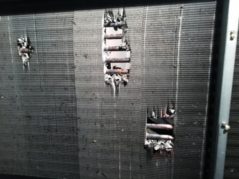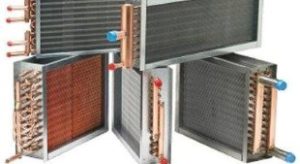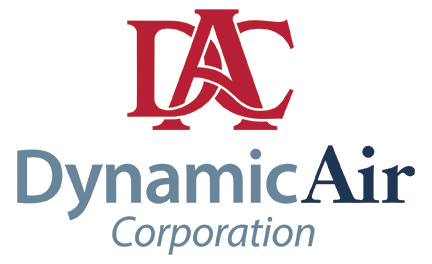Coils – To Repair or Replace
(Credit to Guest Blogger: Dan Jacobs, Capital Coil & Air)

There are multiple reasons why coils can fail prematurely. Sometimes, they simply freeze and can never be repaired. Other times, the coil was selected incorrectly, which in turn, made the coil significantly under-perform. Many times, there is substantial corrosion or something else in the system that causes the coil to fail. However, most coils, when selected correctly, and in systems that are properly maintained, can last anywhere from 10-30 years! While 10-30 years is also a pretty wide range, there are many variables in how long you can expect a coil to perform. Factors, such as on-going maintenance, air quality, and water/steam quality all have an effect on a coil’s lifespan.
But what happens when you try to extend the life of a coil that has obviously reached the end of its usefulness?

Why Do Coils Fail of Old Age?
- While the coil’s tubes are considered the primary surface, 70% of all coil performance is performed by the finned area on a coil, which is known as the secondary surface. The fin/tube bond is easily the most important manufacturing feature in any coil. Without the bond between the tubes and fins, the coil could never properly function. Like all things however, over time the fin/tube bond becomes less efficient with constant expansion and contraction. While the construction of the coil, as well as the fin collars, does not allow the fins on the coil to move, that fin/tube bond naturally weakens a coil’s life over time after installation. Because of this, it is not a stretch to say that a coil is easily 30% less efficient after (20) years.
- Cleaning coils often pushes dirt to the center of the coil, and this occurs even more so on wet cooling coils. Just remember that coils can become great air filters if not properly maintained otherwise you find yourself needing ac repair. The BTU output of any coil is in direct proportion to the amount of air going through the coil. If you decrease the CFM by 20%, you are also decrease the BTU’s.
- Cleaning agents often corrode aluminum fins. Since every square inch of fin surface matters in performance, corrosion of the fin surface is always detrimental to the coil’s performance.
To learn more, read entire article by Dan Jacobs, Capital Coil & Air, 12/11/2018
Related Blogposts:
Coils – Construction vs. Performance
Cooling Coils and Moisture Carryover
Capital Coil and Air is the leading manufacturer of commercial OEM HVAC replacement and custom design/build booster coils, fan coils, condenser coils, and DX Coils.






Leave a Reply